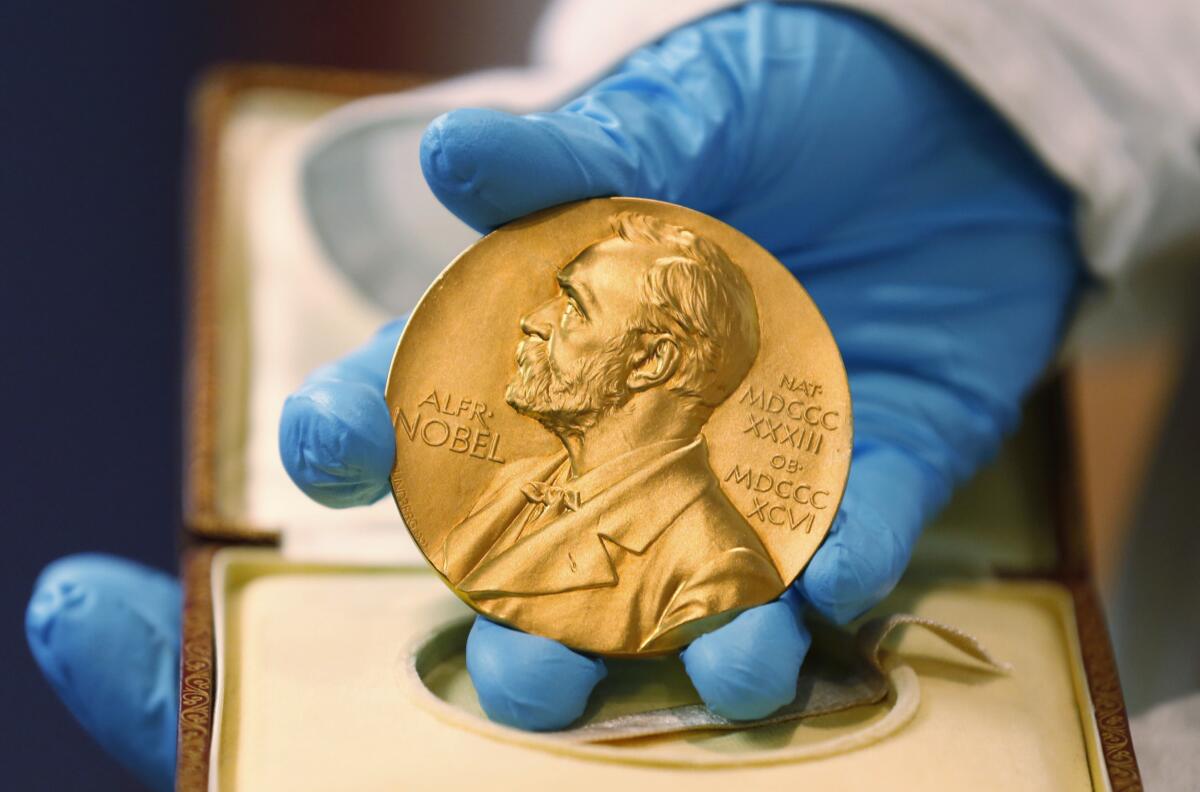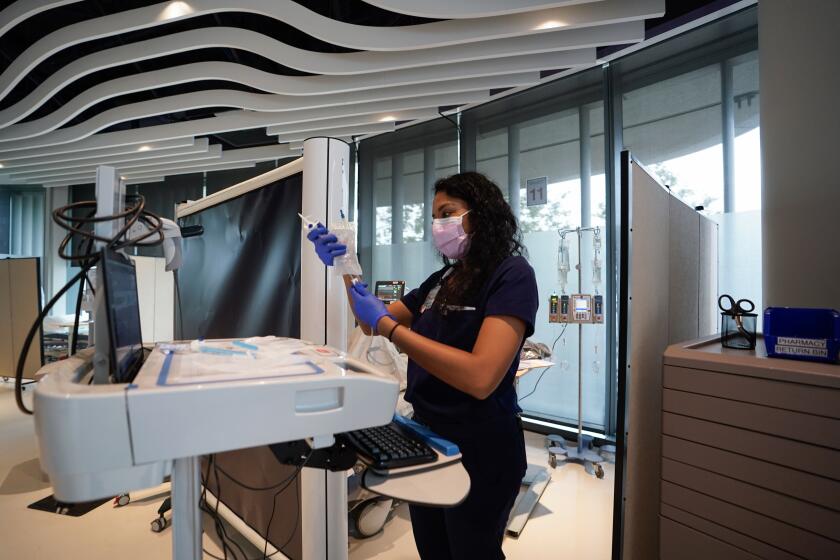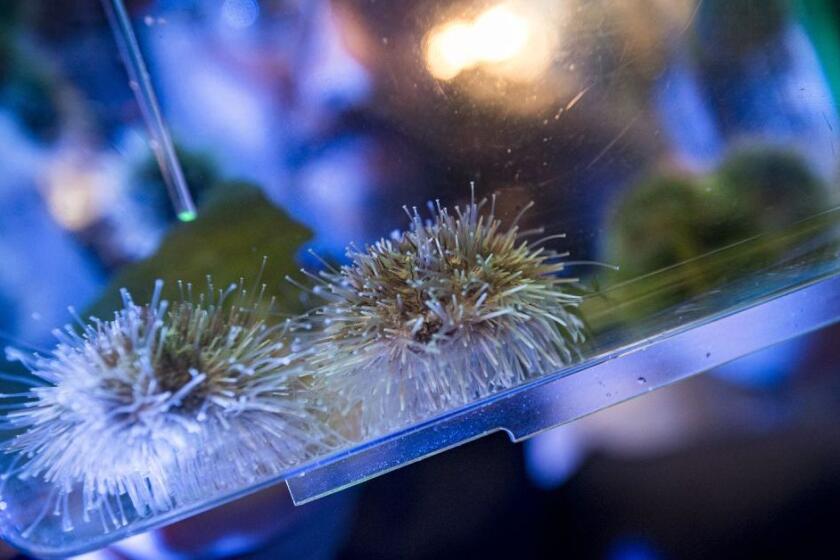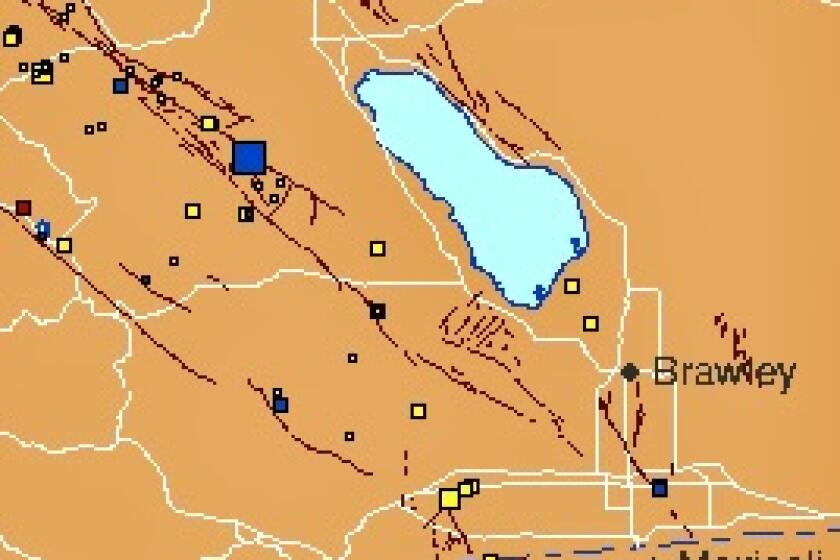Nobel Prize in medicine goes to U.S., U.K. scientists who discovered hepatitis C virus

Two Americans and one Briton share the Nobel Prize in medicine for their discovery of the hepatitis C virus.
Americans Harvey J. Alter and Charles M. Rice and British scientist Michael Houghton were awarded the Nobel Prize for Medicine or Physiology on Monday for their discovery of the hepatitis C virus.
Announcing the prize in Stockholm, the Nobel Committee noted that the trio’s work helped explain a major source of blood-borne hepatitis that couldn’t be explained by the hepatitis A and B viruses. Their work made possible blood tests and new medicines that have saved millions of lives, the committee said.
“Thanks to their discovery, highly sensitive blood tests for the virus are now available, and these have essentially eliminated post-transfusion hepatitis in many parts of the world, greatly improving global health,” the committee said.
“Their discovery also allowed the rapid development of antiviral drugs directed at hepatitis C,” the committee added. “For the first time in history, the disease can now be cured, raising hopes of eradicating hepatitis C virus from the world population.”
The World Health Organization estimates that there are more than 70 million cases of hepatitis worldwide and 400,000 deaths each year. The disease is chronic and a major cause of liver cancer and cirrhosis.
Will Irving, a virologist at the University of Nottingham in England, said that identifying hepatitis C had been the “holy grail” in medicine.
“After hepatitis A and B were discovered in the 1970s, it was clear there was still at least one other virus or more that were causing liver damage,” he said. “We knew there was a virus in the blood supply, because when people had blood transfusion they would get liver damage. It was recognized as a risk but there was nothing we could do. We didn’t know what the virus was and we couldn’t test for it.”
Nobel Committee member Patrick Ernfors drew a parallel between this year’s prize and the current rush by millions of scientists around the world to combat the coronavirus.
“The first thing you need to do is to identify the causing virus,” he told reporters. “And once that has been done, that is in itself the starting point for development of drugs to treat the disease and also to develop vaccines against the disorder.
“So the actual discovery, viral discovery itself, is a critical moment,” said Enfors.
Unlike hepatitis A, which is transmitted via food or water and causes an acute infection that can last a few weeks, hepatitis B and C are transmitted through blood.
American scientist Baruch Blumberg discovered the hepatitis B virus in 1967 and received the 1976 Nobel Prize in Medicine, but this did not explain all cases of chronic hepatitis, a disease that was becoming more common even in apparently healthy people who had received or given blood.
“Before the discovery of the hepatitis C virus, it was a bit like Russian roulette to get a blood transfusion,” said Nobel Committee member Nils-Goran Larsson.
Alter was born in 1935 in New York and carried out his prize-winning studies at the U.S. National Institutes of Health in Bethesda, where he remains active, the committee said.
Rice was born in 1952 in Sacramento. He conducted work on hepatitis at Washington University in St. Louis and now works at Rockefeller University in New York.
Houghton was born in Britain 1950 and did his studies at the Chiron Corp. in California before moving to the University of Alberta in Canada.
While at the NIH, Alter discovered that plasma from patients who didn’t have hepatitis B could also could transfer the disease.
“The breakthrough came in 1989, when Michael Houghton and colleagues working at Chiron Corp. used a combination of molecular biology and immunology-based techniques to clone the virus,” said Nobel Committee member Gunilla Karlsson-Hedestam.
Later, Rice confirmed that a cloned hepatitis virus alone could cause persistent infection in chimpanzees and reproduce the disease observed in humans.
The hepatitis C virus belongs to a group, known as flaviviruses, that also includes West Nile virus, dengue virus and yellow fever virus.
Thomas Perlmann, the secretary-general of the Nobel Committee, said he managed to reach two of the winners, Alter and Rice.
“I had to call a couple of times before they answered,” he said. “They seemed very surprised and very, very happy.”
The prestigious award comes with a gold medal and prize money of 10 million Swedish kronor (about $1.1 million), courtesy of a bequest left 124 years ago by the prize’s creator, Swedish inventor Alfred Nobel.
The award is the first of six prizes being announced through Oct. 12. The other prizes are for outstanding work in the fields of physics, chemistry, literature, peace and economics.
Get Essential San Diego, weekday mornings
Get top headlines from the Union-Tribune in your inbox weekday mornings, including top news, local, sports, business, entertainment and opinion.
You may occasionally receive promotional content from the San Diego Union-Tribune.











